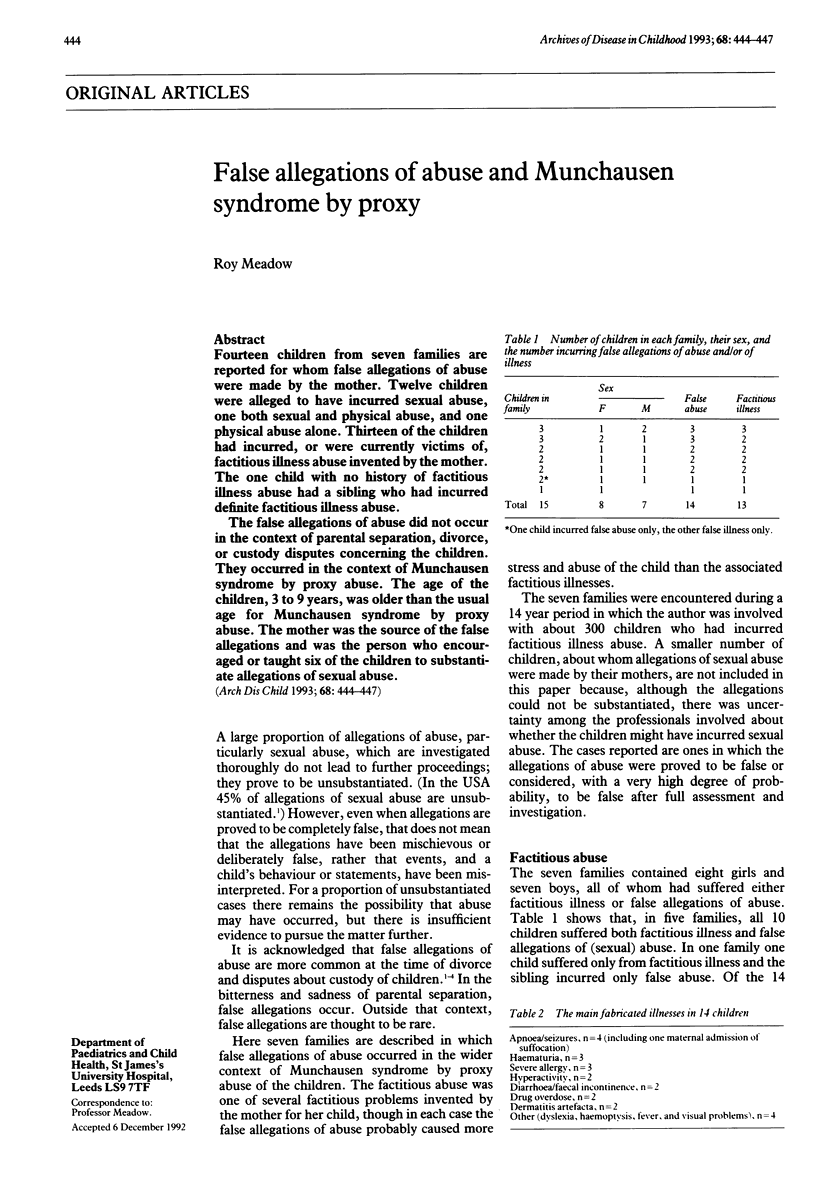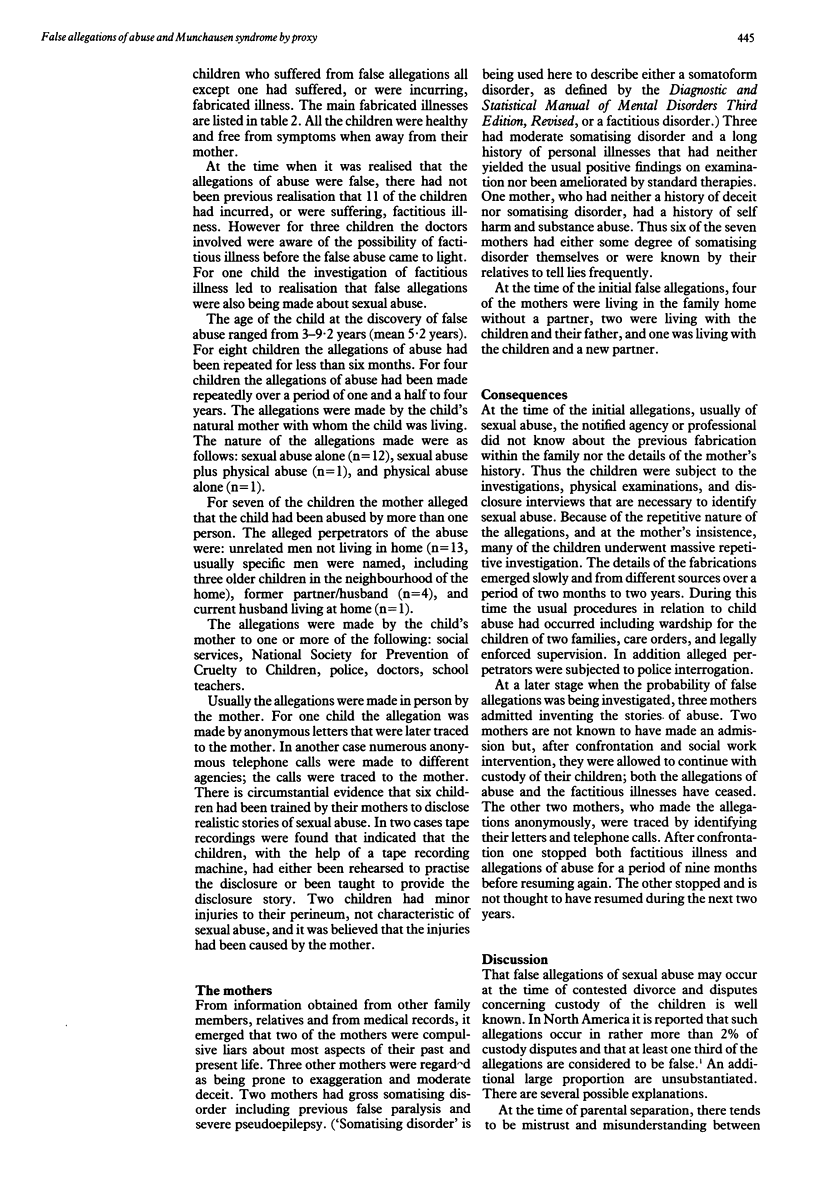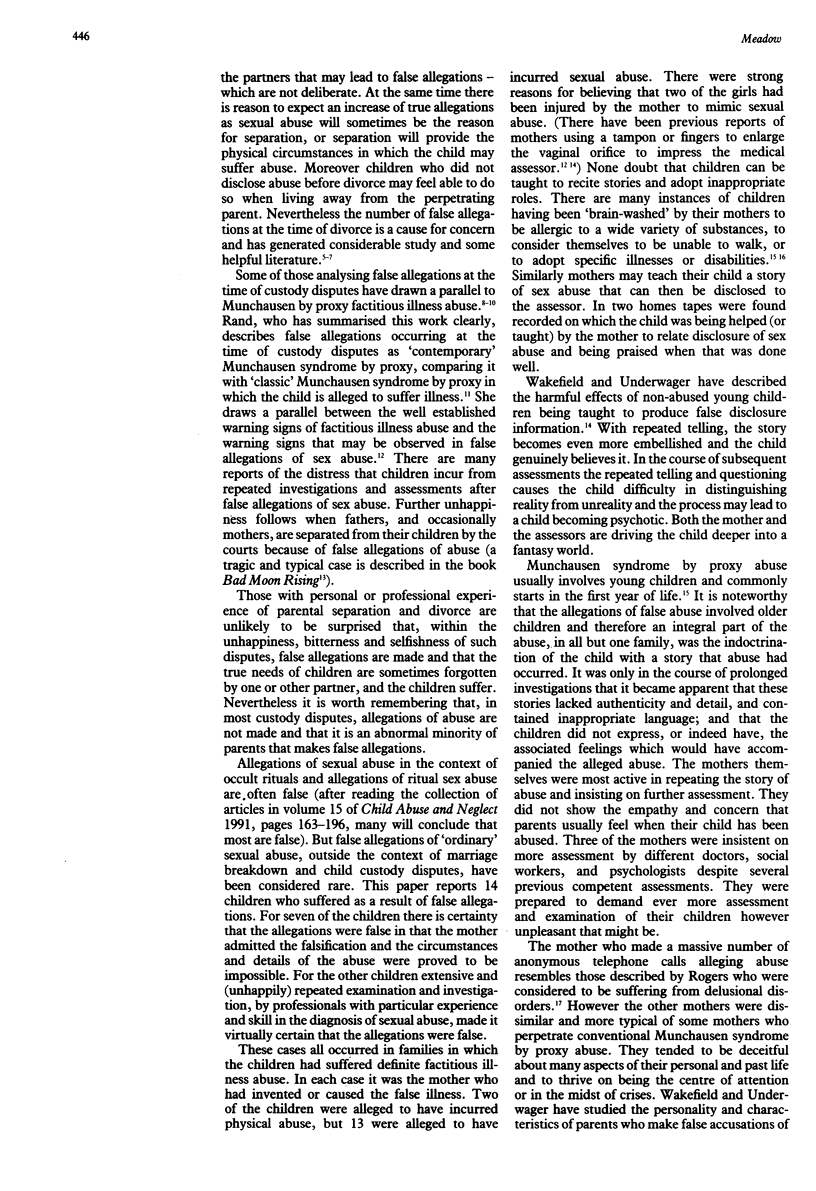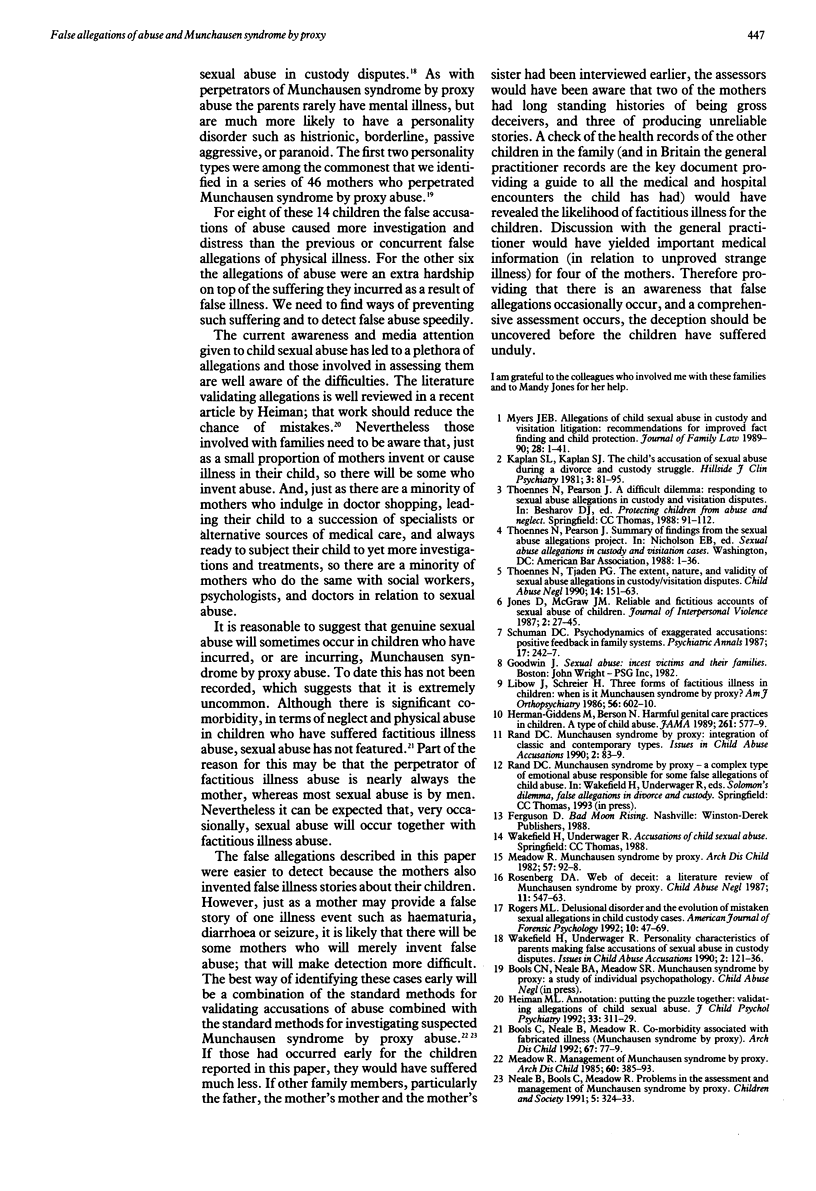Abstract
Fourteen children from seven families are reported for whom false allegations of abuse were made by the mother. Twelve children were alleged to have incurred sexual abuse, one both sexual and physical abuse, and one physical abuse alone. Thirteen of the children had incurred, or were currently victims of, factitious illness abuse invented by the mother. The one child with no history of factitious illness abuse had a sibling who had incurred definite factitious illness abuse. The false allegations of abuse did not occur in the context of parental separation, divorce, or custody disputes concerning the children. They occurred in the context of Munchausen syndrome by proxy abuse. The age of the children, 3 to 9 years, was older than the usual age for Munchausen syndrome by proxy abuse. The mother was the source of the false allegations and was the person who encouraged or taught six of the children to substantiate allegations of sexual abuse.
Full text
PDF



Selected References
These references are in PubMed. This may not be the complete list of references from this article.
- Bools C. N., Neale B. A., Meadow S. R. Co-morbidity associated with fabricated illness (Munchausen syndrome by proxy). Arch Dis Child. 1992 Jan;67(1):77–79. doi: 10.1136/adc.67.1.77. [DOI] [PMC free article] [PubMed] [Google Scholar]
- Herman-Giddens M. E., Berson N. L. Harmful genital care practices in children. A type of child abuse. JAMA. 1989 Jan 27;261(4):577–579. [PubMed] [Google Scholar]
- Kaplan S. L., Kaplan S. J. The child's accusation of sexual abuse during a divorce and custody struggle. Hillside J Clin Psychiatry. 1981;3(1):81–95. [PubMed] [Google Scholar]
- Libow J. A., Schreier H. A. Three forms of factitious illness in children: when is it Munchausen syndrome by proxy? Am J Orthopsychiatry. 1986 Oct;56(4):602–611. doi: 10.1111/j.1939-0025.1986.tb03493.x. [DOI] [PubMed] [Google Scholar]
- Meadow R. Management of Munchausen syndrome by proxy. Arch Dis Child. 1985 Apr;60(4):385–393. doi: 10.1136/adc.60.4.385. [DOI] [PMC free article] [PubMed] [Google Scholar]
- Meadow R. Munchausen syndrome by proxy. Arch Dis Child. 1982 Feb;57(2):92–98. doi: 10.1136/adc.57.2.92. [DOI] [PMC free article] [PubMed] [Google Scholar]
- Rosenberg D. A. Web of deceit: a literature review of Munchausen syndrome by proxy. Child Abuse Negl. 1987;11(4):547–563. doi: 10.1016/0145-2134(87)90081-0. [DOI] [PubMed] [Google Scholar]
- Thoennes N., Tjaden P. G. The extent, nature, and validity of sexual abuse allegations in custody/visitation disputes. Child Abuse Negl. 1990;14(2):151–163. doi: 10.1016/0145-2134(90)90026-p. [DOI] [PubMed] [Google Scholar]


